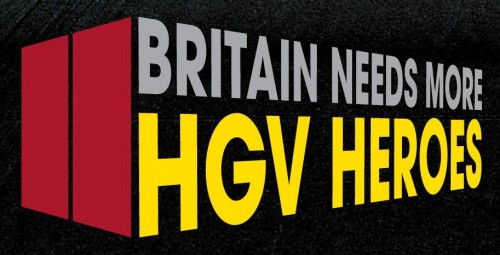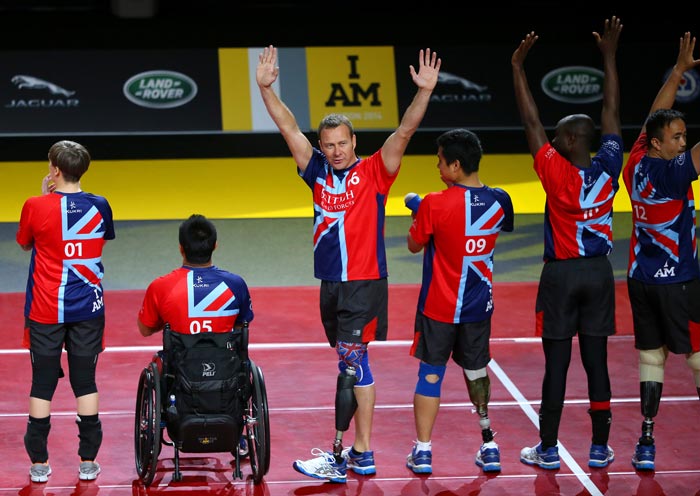
HGV Heroes!
The Road Haulage Association is running a campaign specifically to address the shortage of HGV drivers in the UK.
Why are the Road Haulage Association (RHA) specifically interested in speaking with Service-leavers?
 The RHA has teamed up with Dunlop and launched a campaign called HGV Heroes. The campaign addresses the acute shortage of HGV drivers in the UK, currently estimated to be 45,000. A career as a HGV driver can be very rewarding. The modern truck cab is state of the art in terms of its features and levels of comfort. It is a very responsible job and in terms of financial reward typically attracts an annual salary – including overtime – of £30,000 per annum. ADR (Hazmat) and car transporter drivers can earn upwards of £40,000 a year.
The RHA has teamed up with Dunlop and launched a campaign called HGV Heroes. The campaign addresses the acute shortage of HGV drivers in the UK, currently estimated to be 45,000. A career as a HGV driver can be very rewarding. The modern truck cab is state of the art in terms of its features and levels of comfort. It is a very responsible job and in terms of financial reward typically attracts an annual salary – including overtime – of £30,000 per annum. ADR (Hazmat) and car transporter drivers can earn upwards of £40,000 a year.
The issue we face is a historical poor perception of the profession and a total lack of awareness in schools and colleges about the logistics industry. Over the years Service-leavers have gravitated towards careers in the logistics industry as certainly in the Army and RAF many gain HGV driving licences and other related qualifications due the heavy reliance on goods vehicles to move men and support the massive logistics effort needed to keep an army and airf orce on the move and supplied. I am, in fact, a Service-leaver myself. Also with the number leaving the Services and low unemployment, our industry can offer real opportunities and security.
What are the key attributes that Service-leavers bring to their work that are valued by RHA?
Today’s truck driver is in the front line of any logistics operation. Around 85% of all goods consumed in the UK travels on the back of a truck at some point. Without trucks the UK’s economy would grind to a halt in only two or three days. The people who drive these trucks are real heroes as they have to go out in all weathers, at all hours of the day and night 365 days a year to ensure that goods are delivered: failure is not an option! People who have served in the Forces have the training, the ‘can do attitude’, resolution and determination needed to get the job done. HGV drivers are also the ambassadors for their employers and the industry. They must be well turned out, polite, good problem solvers and communicators. These qualities are in abundance within Service personnel. They must also comply with a range of strictly enforced drivers’ hours and vehicle safety legislation designed to ensure the safety of the driver and the general public. Rules and regulations do not faze ex-Service personnel, while civvies often struggle. Given there are a large number of ex-Forces personnel working within the freight transport and logistics industry, there is a high level of comradeship among drivers.
Does the RHA have any specific scheme for Service-leavers?
The RHA represents around 7,000 road haulage and logistics companies, operating over 80,000 HGVs. Through its HGV Heroes partnership with Dunlop the RHA contacts anyone expressing an interest in an HGV driving career through the HGV Heroes website and then puts them in touch with an RHA member company in their area who is looking for drivers. After that any further discussion is between the interested party and the potential employer. By doing this we are helping our members, the industry and job seekers. We also are involved in a project with Jobcentre Plus called ‘Driving Britain’s Future’. Through our members we provide work experience placements for jobseekers looking for work as drivers.
All drivers have habits that need to be corrected. Are there any that Service-leavers frequently display?
The average 44-tonne truck does 8mpg and covers 90,000 miles a year. Fuel costs account for 45% of haulage costs. With safe and fuel efficient driving, which involves a lot of skill, drivers can improve their performance by 1mpg. Drive it with too much enthusiasm and fuel consumption can reduce to 7mpg very easily. Employers reward skilled and efficient driving. They frown on the alternative. So to answer your question from my recollection of my days in the Army, everything had to be done at the double so to be honest that would be one. The other would be Military discipline. The Military style of giving orders and the more robust approach has no place in today’s civilian workplace. A more understanding empathetic approach is required, when dealing with peers, subordinates and when speaking with management the relationship is far more informal than many Service-leavers will be used to.
More:
www.hgvheroes.com



